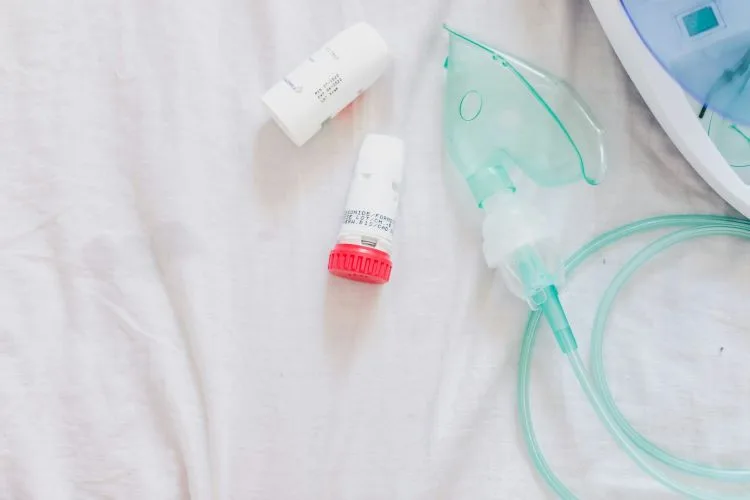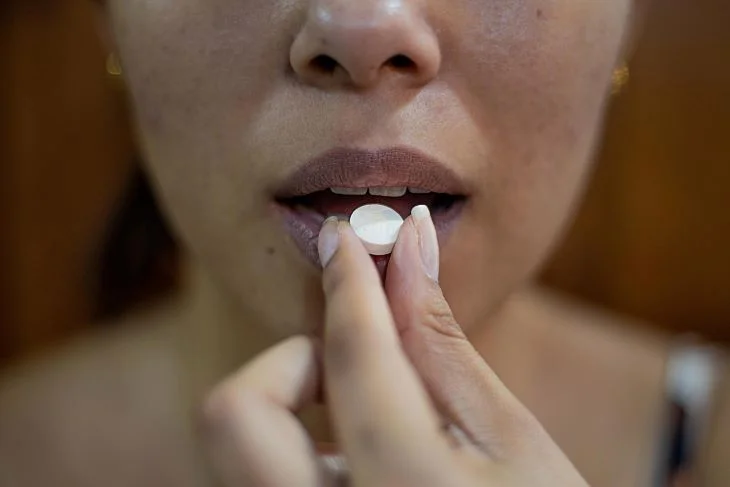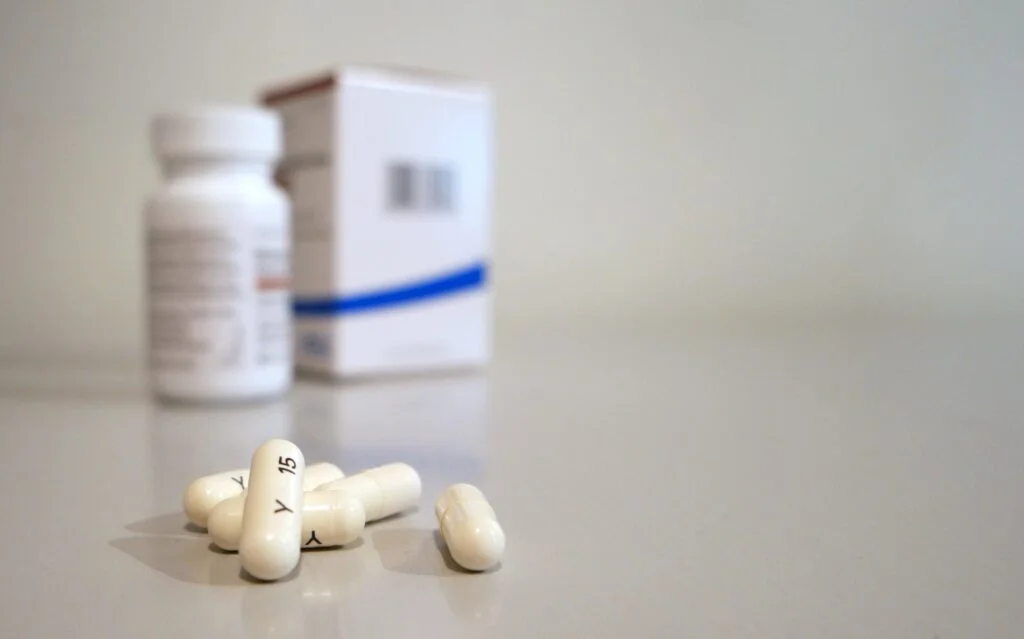Steroids & Alcohol: Can You Drink on Steroids?
Steroids are useful drugs that can be used to treat lots of medical conditions and ailments.
If you’re taking them long term, you may be wondering if you can go about your daily life and enjoy the things you usually do.
Whether you’re used to enjoying a glass of wine with dinner, a beer with friends, or cocktails at a party, it’s important to be informed before drinking on steroids.
What Are Steroids?

Steroids are a class of powerful drugs that affect different processes in your body.
They’re used in medicine for very different purposes depending on their type.
Corticosteroids

Corticosteroids, such as prednisone and hydrocortisone, are synthetic drugs designed to mimic hormones produced by the adrenal glands.
These hormones play a vital role in regulating the immune system, inflammation, and stress responses.
Corticosteroids reduce inflammation and suppress immune responses in:
- Asthma: Used to reduce airway inflammation, easing breathing difficulties
- Allergies: Help control allergic reactions like hay fever or skin rashes
- Autoimmune disorders: Treat diseases like rheumatoid arthritis and lupus, where the immune system mistakenly attacks healthy tissues
- Inflammatory conditions: Managing chronic inflammatory diseases like inflammatory bowel disease (IBD) or Crohn’s disease[1]
While corticosteroids are effective at controlling inflammation and immune reactions, they come with adverse effects when used long-term, such as:
- Infections: From a reduced immune system response
- Bone loss: Long-term use can lead to osteoporosis
- Weight gain: Corticosteroids can cause fluid retention and an increase in appetite
- Mental health problems: Like depression, suicidal thoughts, anxiety, confusion and hallucinations
- High blood pressure: Prolonged use may contribute to hypertension[2]
Anabolic Steroids

Anabolic steroids, like testosterone, are mainly used to speed up muscle growth and enhance your athletic ability.
These steroids increase protein synthesis in cells, leading to a rapid build up of muscle mass.
Though anabolic steroids are sometimes prescribed medically.
They’re widely known for being abused by athletes and bodybuilders aiming to enhance physical appearance and performance.[3]
Common uses of anabolic steroids include:
- Muscle-building: Patients who need to regain muscle mass due to chronic illness or injury
- Hormonal therapy: People undergoing gender reassignment[4], or experiencing delayed puberty or hormonal imbalances
However, anabolic steroids are often misused, and their non-medical use can lead to severe side effects, including:
- Liver damage: Prolonged use can cause liver toxicity, leading to liver disease or cancer
- Cardiovascular risks: Increased risk of heart attacks, strokes, and high blood pressure
- Hormonal imbalances: Use can disrupt the body’s natural hormone production, causing conditions like gynecomastia (development of breast tissue in men) or infertility
- Aggression and mood swings: Anabolic steroids have been linked to heightened aggression, irritability, and mood disorders[5]
What Effect Does Alcohol Have on the Body?

Alcohol is a toxin, which does cause health complications when consumed in large doses.
Alcohol can cause damage to the liver function:
- Alcohol is processed by the liver, and drinking too much can overwhelm it
- Frequent or heavy drinking can lead to liver damage, such as fatty liver, hepatitis, or cirrhosis (severe liver scarring)[6]
Your mental health can be affected:
- Alcohol can affect your mood and mental well-being
- It may cause depression, anxiety, and mood swings
- In the long term, alcohol can worsen mental health conditions and contribute to alcohol dependence (addiction)[7]
- Impaired judgment (leading to accidents and risky behaviour)[8]
Alcohol can disrupt the nervous system:
- Alcohol slows down brain function, affecting coordination, reflexes, and decision-making
- Impaired judgment and slowed reaction times increase the risk of accidents and injuries
- Over time, alcohol can cause nerve damage and lead to memory problems or difficulty thinking clearly[9]
Can You Drink Alcohol While on Corticosteroids?

Drinking on steroids is generally safe, within reason.
The NHS advises that you can usually drink while taking steroids, but drinking too much may irritate your stomach.[10]
There are a few potential risks of mixing corticosteroids and alcohol, so it’s important to be cautious.
This is because both alcohol and steroids have common side effects, so these effects can be exacerbated.
What Should I Consider Before Drinking on Steroids?

Dosage and Treatment Duration
If you’re taking a high dose of steroids or need them for a long time, drinking alcohol can be riskier.
Higher doses of steroids can put extra pressure on your liver. This is where alcohol is processed, so the two can overload your system.
If you’re on a strong course of prednisone for several months, drinking regularly could lead to liver damage much faster than if you weren’t taking any medication.
It’s important to ask your doctor how much alcohol, if any, is safe to drink during your treatment.
Your Personal Health
Your health condition matters a lot. If you already have liver problems, like fatty liver disease, alcohol should be avoided, as both alcohol and steroids affect the liver.
Similarly, if you have high blood pressure, drinking can make it worse, especially when combined with steroids, which can also raise your blood pressure.
For someone with diabetes, steroids can cause blood sugar levels to spike. Alcohol can also affect your blood sugar, so drinking while on steroids can make it even harder to keep your diabetes under control.
Age, Sex, and Individual Response

Things that affect your body like age, sex and size can influence how you react to both steroids and alcohol.
If everyone on your table is drinking, the people with a smaller body mass, like many women, will feel a greater effect.
Older people generally process drugs more slowly, meaning the risks can be higher.
If you’re elderly or have other health concerns, like a weakened immune system, mixing alcohol with steroids could increase your risk of infections or other complications.[11]
How Often You Drink
If you drink alcohol regularly or in large amounts, the potential side effects of steroids could be more severe.
If you’re on steroids for a short time, it may be safer to avoid alcohol altogether until you’re finished with your treatment.
If you’re on long-term steroids, your doctor might suggest cutting down on how much or how often you drink to reduce the risks.[12]
By keeping these factors in mind, you can make more informed decisions about drinking alcohol while taking steroids.
It’s always best to talk to your healthcare provider for advice specific to your situation.
How Can I Drink Safely on Steroids?

Consult Your Healthcare Provider
Always check with your doctor before drinking alcohol while on steroids.
Your GP or healthcare provider can tell you whether it’s safe for you based on your specific treatment and health condition.
Some people may need to avoid alcohol completely, while others may be allowed to have a small amount.
The best advice will come from your doctor, as they know your medical history.
Limit Alcohol or Avoid It Entirely
The safest option is to limit alcohol or avoid it while on steroids.
Even a small amount of alcohol can increase the side effects of steroids, especially if you are on a high dose or long-term treatment.
If you do decide to drink, keep it to a minimum. For example, limit yourself to one or two drinks and avoid regular drinking.
Tips for Staying Safe

By following these guidelines, you can reduce the risks associated with drinking alcohol while on steroids:
- Stay hydrated: Alcohol dehydrates the body, and steroids can also cause water retention. Drinking plenty of water can help reduce the strain on your liver and kidneys
- Avoid binge drinking: Drinking large amounts in a short time can be especially harmful when on steroids. A heavy alcohol intake can overload your liver and increase the risk of severe side effects like stomach ulcers or immune system problems
- Monitor for side effects: Pay attention to how your body reacts when you drink. If you notice increased stomach pain, dizziness, or unusual tiredness, stop drinking and talk to your doctor
Always remember that your healthcare provider can give you the most accurate advice based on your individual situation.
What is Alcohol Use Disorder?

Alcohol Use Disorder (AUD) is a medical condition where someone is unable to control or stop drinking alcohol despite the negative effects it has on their health, relationships, and responsibilities.
It ranges from mild (alcohol abuse) to severe (physical alcohol dependency). Severe cases are commonly referred to as alcoholism.
People with AUD often feel a strong craving for alcohol, struggle to cut down on drinking, and may experience alcohol withdrawal symptoms like anxiety, sweating, and tremors when they try to stop.
AUD can have serious health consequences. It can also impact daily life, affecting work, relationships, and overall well-being.[13]
Why Some People on Steroids May Have Trouble Refraining from Drinking

Steroids, particularly corticosteroids, can cause mood swings, anxiety, or depression, which may lead some people to use alcohol as a way to cope.
This can be especially difficult for people who already have a history of alcohol use or dependency.
The combination of alcohol’s effects and the emotional side effects of steroids can make it even harder for someone to stop drinking.
Anabolic steroid users often experience mood disturbances, and alcohol may be used to self-medicate these feelings.
Treatment Options for Alcohol Use Disorder

If you’re on steroids and struggling with AUD, there are several treatment options available, both through the NHS and private providers:
Inpatient Rehab
Inpatient rehab has one of the highest success rates:
- What it is: Inpatient rehab involves staying at a facility for a set period, usually from a few weeks to a few months. During this time, patients receive 24-hour care, participate in therapy sessions, and work on recovery in a structured environment
- Who it’s for: This is often recommended for people with severe alcohol dependency, where withdrawal symptoms may be dangerous, or where the individual needs to be removed from their current environment to avoid triggers
- NHS options: The NHS provides some inpatient services, but there can be waiting lists. Typically, this level of care is reserved for those with the most severe needs
- Private options: There are many private rehab centres in the UK that offer inpatient treatment. While costly, they may offer more immediate access to care and a wider range of treatment options
Outpatient Rehab

Outpatient rehab is a good free option:
- What it is: Outpatient rehab allows individuals to live at home while attending regular therapy sessions or support groups. This treatment is more flexible and can be suited to those with milder AUD or those who cannot take time away from work or family
- Who it’s for: Outpatient care is ideal for those who do not need medical detoxification and have a strong support system at home
- NHS options: The NHS offers outpatient services, including counselling, medication, and support groups
- Private options: Private outpatient programs are also available, offering a range of therapeutic options that may not be available through the NHS
Detox Services
If you drink heavily, a medical detox may be needed to safely manage alcohol withdrawal symptoms.
Both NHS and private providers offer supervised detox programs, which can be done on an inpatient or outpatient basis.
Self-Help Groups for AUD

Self-help groups can provide alternative or ongoing support for people recovering from AUD.
These groups offer a sense of community and shared experience that can be vital for long-term recovery:
- Alcoholics Anonymous UK (AA) is a global support group based on a 12-step program designed to help people achieve and maintain sobriety. Meetings are free and available in most areas, offering a space for individuals to share their experiences and support each other. Members attend regular meetings and work through the 12 steps, which involve self-reflection, making amends, and helping others
- SMART Recovery UK offers an alternative to AA, focusing on self-empowerment and cognitive-behavioural techniques to help individuals manage their addiction. The program is based on practical tools and techniques that focus on managing thoughts, feelings, and behaviours associated with addiction
- Al-Anon is a group for the family and friends of people with AUD, offering support to those affected by a loved one’s drinking
- NHS choices offer access to local support groups and counselling services to help people manage alcohol dependency
For those on steroids struggling with alcohol use, these resources and support systems offer a path to recovery.
It’s important to take the first step by seeking help, whether through a healthcare provider or a support group.
Drinking and Steroids – So What’s the Answer?

Mixing alcohol with steroids can be risky, as both substances can put pressure on your liver and other organs.
These risks depend on factors like your dosage, the duration of steroid treatment, and your overall health condition.
It’s important to ask your doctor before drinking alcohol while on steroids. They can provide guidance based on your specific treatment plan and health needs.
If you experience any unusual symptoms such as stomach pain or fatigue after drinking, you should stop and seek medical advice straight away.
By limiting or avoiding alcohol and staying informed, you can safely drink alcohol while taking steroids.
References
[1] https://www.nhs.uk/conditions/steroids/
[3] https://www.nhs.uk/conditions/anabolic-steroid-misuse/
[4] https://www.ncbi.nlm.nih.gov/pmc/articles/PMC8744429/
[5] https://www.nhs.uk/conditions/anabolic-steroid-misuse/
[6] https://www.nhs.uk/conditions/liver-disease/
[7] https://www.nhs.uk/live-well/alcohol-advice/alcohol-support/
[8] https://www.nhs.uk/conditions/alcohol-misuse/
[9] https://www.nhs.uk/live-well/alcohol-advice/
[11] https://nida.nih.gov/publications/drugfacts/substance-use-in-older-adults-drugfacts
[12] https://www.nhsinform.scot/healthy-living/alcohol/the-risks-of-drinking-too-much/
[13] https://www.niaaa.nih.gov/publications/brochures-and-fact-sheets/understanding-alcohol-use-disorder




